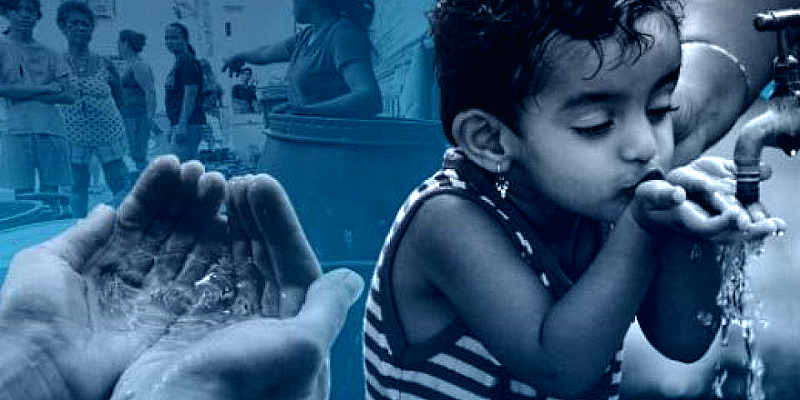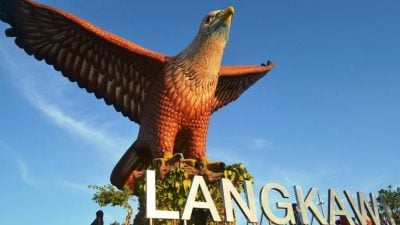Climate change is now well established as one of the most pressing issues of our time, with the most evident impact felt through our relationship with water.
Rising temperatures and changing weather patterns continue to disrupt the water cycle around the world, impacting societies, ecosystems, and economies through unpredictable water availability and quality.
In response, the world committed to Sustainable Development Goal (SDG) six back in 2015 as part of the 2030 Agenda, with the aim of providing safely managed water and sanitation for all.
Unfortunately, almost a decade later, we are still alarmingly off track. Globally, billions of people still lack safe water, sanitation, and handwashing facilities, while climate change continues to amplify water-related extremes around the world.
Beyond its direct impacts, climate change reveals underlying vulnerabilities stemming from poor water governance, giving rise to calls for a more sustainable management of water.
In the Philippines, this is demonstrated in varying access to water across communities, with water security threatened by a range of interconnected pressures including population growth, urbanization, and increasing water pollution.
This year’s theme for World Water Day, “Accelerating Change,” reflects the critical need for climate action to match or even exceed the pace of climate change. How do we increase the pace of transition?
This remains top-of-mind for me and other attendees at this week’s United Nations 2023 Water Conference, where key decision-makers from all fronts will come together to create an agenda that “gives our world’s lifeblood the commitment it deserves,” as noted by UN Secretary General António Guterres.
What’s encouraging is that stakeholders will bring their own unique perspectives and strengths to this crucial forum.
What I hope we come away with is a bold, whole-of-society approach that significantly accelerates action across governments, businesses, and the public.

Governments have taken a lead with policies that provide impetus for the sustainability transition. The challenge is to ensure that decision-makers in other sectors that rely on water, or impact water management, understand and come on board too.
The Paris Agreement has been a landmark initiative in the multilateral climate change process, bringing together the world’s nations to support a common strategy to cut greenhouse gas emissions. It is now the leading framework for key discussions and dialogues.
While the Science Based Targets initiative mobilizes the private sector to take urgent climate action by providing guidelines on how to set ambitious targets to reduce emissions, consensus on water is proving more elusive.
We need to take a similar approach to climate by building a stronger consensus on frameworks, goals, and guidelines for water, with nuances to reflect local conditions and resources.
The Water Action Agenda, a main outcome of the conference, is set to accelerate progress by guiding both governments and businesses to better manage water and tackle related challenges.
As well, the private sector must “walk the talk” and embed water stewardship in their businesses, by leveraging innovation and collaboration to achieve collective change.
One approach is advancing water reuse and recycling so that wastewater is effectively treated to a quality that makes it safe to feed back into our water cycles.
A leader in this area is Danish multinational brewer Carlsberg, which aims to cut its water use by half by 2030.
In its production facility in Fredericia, Denmark, Carlsberg has developed a total water management treatment plant with consultants, universities, and technology providers like Grundfos.
The onsite facility purifies used process water from being used for mainly cleaning purposes to drinking water quality, sending 90 percent of it back to the brewery to be reused as process water.
The public also has a big role to play in accelerating change. More than just driving home the message about climate change and highlighting the importance of strength in numbers, it must mobilize on climate action.
Aided by data and knowledge shared by key stakeholders, the public can take more informed and effective individual action.
In the Philippines, initiatives like the British Geological Survey’s Philippine Groundwater Outlook project, which piloted borehole sensors in Pampanga province and Iloilo City, provide residents with access to automated and real-time monitoring of groundwater levels and quality to encourage shared responsibility in water management.
While the SDG drawn up in 2015 have yet to be fully realized, it’s crucial that we don’t lose momentum.
World Water Day reminds us that by channeling the efforts of government, business, and individuals toward addressing the water crisis, we can be the change we want to see, and collectively close the gaps in other global challenges.
ADVERTISEMENT
ADVERTISEMENT








































